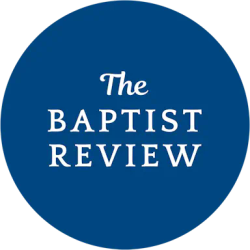Every new pastor shares this experience: “What do you prefer to be called?” In my case, they offer up a multiple-choice menu of options: “Reverend? Preacher? Brother John? Dr. John? Pastor John?” Give me “Pastor John” every time. But this is a title we earn. Compassionate preaching helps, but we don’t earn it in the pulpit. Humble leadership helps, but we don’t earn it in the boardroom.
We earn it in church hallways, in the hospital, in the funeral home and the cemetery, in the late-night phone call, in the living room of a broken parishioner, at the high school football game as we chat with an athlete’s parents, and in the aisle of the local Walmart as we take a few minutes to listen to a hurting church member. In a word: presence. We earn the title “Pastor” by being with our people where they are and as they are. When we are present with our people, Christ is somehow mystically present too. Our people feel loved, seen, and cared for, not just by us, but by Christ.
Along with preaching and leadership, pastoral care is a key function and competency for the local pastor. The gist of this work is helping our people learn how to live well and die well.In a word to “the elders,” Peter writes, “Shepherd God’s flock among you, not overseeing out of compulsion but willingly, as God would have you; not out of greed for money but eagerly; not lording it over those entrusted to you but being examples to the flock” (1 Pet 5:2-3). I’d suggest pastoral care is at the heart of our three main pastoral roles. It doesn’t just shape how we tend to someone with a burden, it informs how we preach and lead.
Pastoral care is grunt-work. There’s nothing glamorous about it.The one-on-one or one-on-family care we give is often done in a corner. It doesn’t garner the applause of a fantastic sermon or leadership success. Nobody’s dumping a cooler of Gatorade over your head or carrying you off on their shoulders. Eugene Peterson says it this way: “Pastoral work consists of modest, daily, assigned work. It is like farm work. Most pastoral work involves routines similar to cleaning out the barn, mucking out the stalls, spreading manure, pulling weeds.” Maybe this is why some pastors prefer the pulpit and the boardroom to the field. But our Chief Shepherd Jesus calls us to join him in the field, alongside people he loves, pointing them to Jesus’ faithful presence and sufficient grace. What are some ways we can do that well?
Work the Big Picture of Pastoral Care
We begin with cultivating Christ-like character. We work to live in sync with Christ and to walk in step with the Spirit. Cultivating Christian character builds guardrails that keep us humble, honest, and holy. We have fewer blind spots to our own temptations. We can enter pastoral care opportunities better equipped to bring to bear Jesus’ resources in the lives of our parishioners. Character cultivates trust among the congregation, gives them confidence to receive our care. The church father Ambrose pointed out the importance of pastoral character in creating opportunities for ministry when he wrote, “Who seeks a spring in the mud?” We can cultivate Christian character.
We can also develop a culture of pastoral care in the congregation. I remind our church staff that we are pastors first. I encourage them to know their ministry constituents and be a frontline pastor to them. We train and encourage deacons, Sunday School classes, and women’s ministry leaders to provide pastoral care among their constituents too. This broadens the church’s pastoral team. It doesn’t necessarily reduce my pastoral care load, but it provides a conduit of information for me and provides more care to those in need. What may have required a visit, now requires a phone call or a follow-up note. Along the same line, we also offer group classes or support groups that address pastoral care needs like marriage, parenting, divorce, grief, sexual addiction, financial management, memory caregivers, making peace with the past, etc. The goal is that our people receive pastoral care, not that I provide it all. Develop a culture of pastoral care.
Know your limits. Pastor, you can’t do everything, and you certainly can’t do everything well. You only have so much knowledge, skill, and time. Manage it well. You are not a hired hand; you are a pastor. It’s not your calling to tend to every voice that begs your attention. Be discerning and deliberate within your limits. Know when to refer someone for more long-term care. Have two or three good counselor-referrals in your pocket when needed. God neither equips nor calls you to run around with your hair on fire trying to be everybody’s savior,like the minister Flannery O’Conner described as “one part minister and three parts masseuse.” One of my favorite John Wayne quotes is, “Life is hard. It’s harder if you’re stupid.”Pastoral care is hard. It’s harder if you’re stupid. Know your limits.
Keep learning. Some areas of pastoral care will interest you more than others. Be abreast of the new research in soul care but don’t neglect some of the classic pastoral care texts. Work to have a general knowledge of the various needs that require pastoral care: depression, anxiety, marriage issues, sexual addiction, parenting skills, divorce, gender issues, etc. Depending on the care issues that present in your congregation, perhaps pick one or two issues a year to focus on. “This year I want to learn more about depression. I will read two books in that area and schedule an appointment with “an expert” in thismatter.” Keep learning.
Use the pulpit. If you’re preaching through a Bible book, don’t shy away from dealing with emotional or behavioral issues that the text raises. And don’t be afraid to preach a topical series on some of the issues that often require pastoral care. My experience is that when I preach on these issues, I get emails and calls from people who want to talk more. Not only do you do some group counseling in preaching on these issues, you also give the Holy Spirit room to raise these issues in your peopleand give them permission to seek help. Use the pulpit in pastoral care—what Harry Emerson Fosdick called, “counseling on a group scale.”
Cultivate the Little Practices that Provide Big Care
In our day-to-day practice of pastoral care, there are little practices that provide care and leave a Jesus-fragrance as we go about our work. Call it pro-tips or wise counsel, but these are practices that served me well in almost a half-century of local church ministry—42 years of it as a senior pastor.
Learn and use names. In teaching about his shepherding ministry, Jesus said, “The one who enters by the gate is the shepherd of the sheep. The gatekeeper opens it for him, and the sheep hear his voice. He calls his own sheep by name and leads them out” (Jn 10:2-3). Calling someone by name makes a deeperJesus-impression than, “Hey, you” or “Hey, friend,” or “Hey, kid.” When you love people, you learn their names and use them.
Make yourself available when people are gathered. Don’t hide in your study, emerging only to ascend the pulpit. Before and after services, hang out, shake hands, visit a little. You learn things, discover needs, deepen connections, and provide care-on-the-go.
Pray on the spot. When possible, and it usually is, when casual conversation reveals a prayer need, pray with your parishioner in the moment. Don’t just promise prayer, pray on the spot. Brief, pointed prayer on the spot blesses and encourages.
Take initiative. Pastors have one of the few occupations that can take initiative in offering care. If you learn something or the Lord puts a burden on your heart for a parishioner, take the initiative and make a call. It may be nothing. It may be critical. Don’t be afraid to take the initiative.
Use Scripture. Bank in your soul several Scriptures that encourage, inspire, and strengthen. Use appropriate texts when offering pastoral care. God’s words are better than our words. God’s Word gives life.
Check the social media feeds of your people. You might respond with an encouraging comment or find a need requiring more personal contact. Private correction may be in order.
Use phone calls, texts, and especially handwritten notes to offer care. Notes give time for people to linger over your words. Many parishioners will save those notes for years. Determine to write two or three notes a week.
Embrace interruptions. Those can be gateways to significant ministry opportunities. God knows your schedule. Trust him.
Make some house calls and visit people at their workplace (when possible). We learn a lot about people when we get into their world.
You’ll be surprised how these little practices provide big care in your congregation.
Press on in Pastoral Care
I retired from a 28-year pastorate on December 31. One of the gifts the church gave us is a book of letters from the congregation. There are hundreds of them. Though many mentioned how my preaching had blessed them and how the church made a difference in their lives, most recounted little acts of care along the way, many of which I’d forgotten, that helped them in the moment and left a lasting impression of Jesus’ love and grace. Pastoral care matters. And you know what I like the most about those letters? Almost everyone begins with “Pastor John.”


